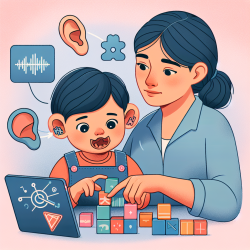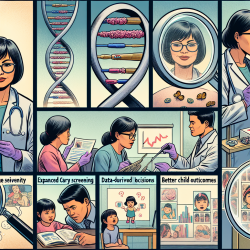The complexities of addressing the needs of adolescents in institutional care are immense, especially in regions with underdeveloped social welfare systems. The research article titled "Different Points of a Continuum? Cross Sectional Comparison of the Current and Pre-contact Psychosocial Problems among the Different Categories of Adolescents in Institutional Care in Nigeria" by Atilola (2012) provides valuable insights into the psychosocial challenges faced by these adolescents. This blog post aims to help practitioners enhance their skills by implementing research outcomes or encouraging further research.
Understanding the Continuum of Psychosocial Problems
The study compares adolescents in Nigerian institutional care categorized as either on 'criminal code' or as 'neglected'. Both groups share similar family backgrounds characterized by high rates of parental separation, family transitions, and exposure to traumatic events. However, there are significant differences in their psychosocial needs:
- Adolescents on 'criminal code' had higher rates of conduct and substance use disorders.
- Neglected adolescents had poorer anthropometric profiles and higher prevalence of neurological disorders.
Implementing Research Outcomes
Practitioners can use these findings to tailor their interventions:
1. Individualized Mental Health Services
Adolescents on 'criminal code' require targeted behavioral therapy and substance abuse programs. In contrast, neglected adolescents need comprehensive neurological and physical health support.
2. Family-Centered Interventions
Given the commonality of disrupted family structures, interventions should focus on family counseling and support programs to stabilize the home environment.
3. Non-Incarcerating Care Models
Advocating for non-incarcerating care models such as foster care can provide a more nurturing environment conducive to rehabilitation.
Encouraging Further Research
The study underscores the need for more extensive research to develop effective prevention and intervention strategies. Future studies should:
- Explore the feasibility of establishing formal foster care systems in Nigeria and similar regions.
- Investigate the long-term outcomes of adolescents who receive tailored interventions based on their specific psychosocial needs.
By embracing a data-driven approach, practitioners can significantly improve the quality of life and rehabilitation outcomes for adolescents in institutional care.To read the original research paper, please follow this link:
Different Points of a Continuum? Cross Sectional Comparison of the Current and Pre-contact Psychosocial Problems among the Different Categories of Adolescents in Institutional Care in Nigeria.










